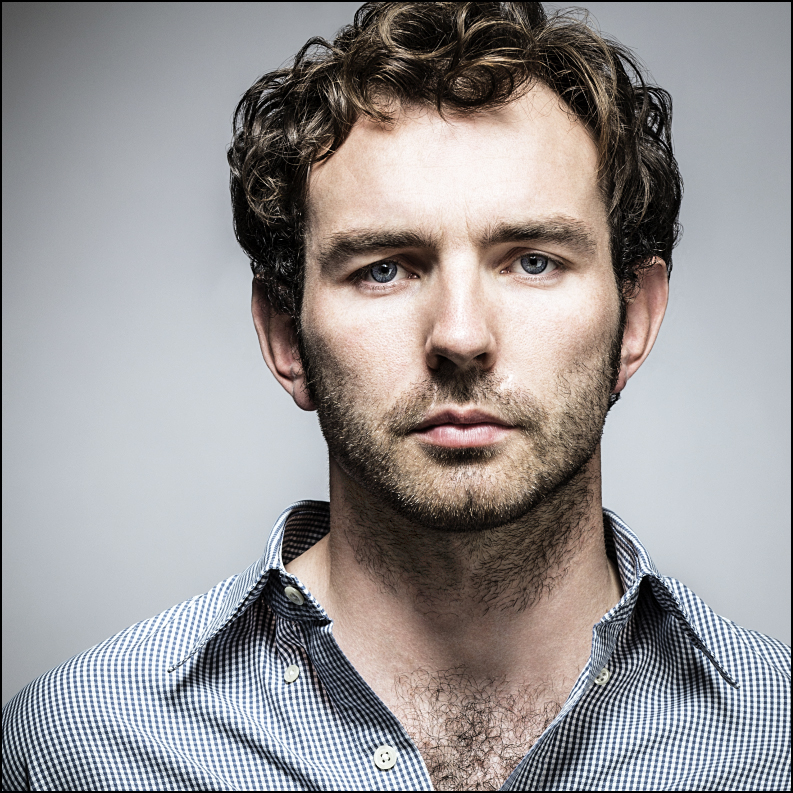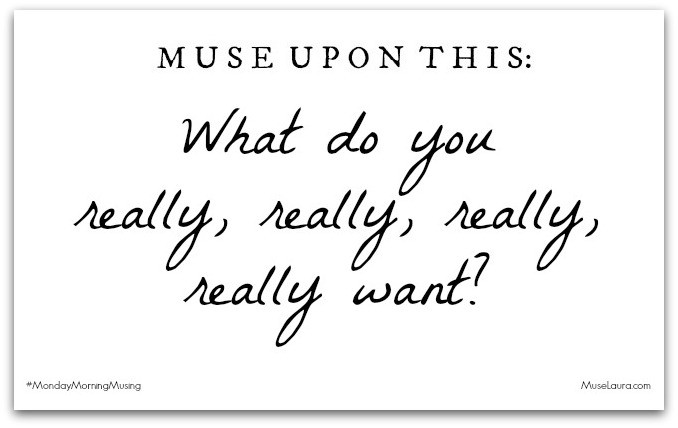
By Tom Lancaster
We live in a world that is so focussed on results, on taking the next step, achieving goals, writing to-do lists, goal lists, action lists…but we don’t spend nearly enough time talking about what we actually want. And until we really understand what it is that we want, how can we possibly know what actions we need to take to get the things that we want?
Most people operate in the world of actions and results: What are the results you want to achieve, and what are the actions you need to take in order to achieve those results. But the space that I like to play in is the space underneath action. How do you see the world, how do you speak your world, and underneath all of that, what is it that you truly desire? If we don’t know what we really want, if we don’t understand the story that we tell and the way that we see the world around us, then we have no way of knowing whether the actions that we are taking are going to give us the results that we actually want. We might think they will, and they might bring us temporary satisfaction, but if what we are looking for is a life of fulfilment; if what we are looking for is a life that is connected to our purpose, that has meaning, then we have to understand the way we see the world and the way we speak the world.
Let’s imagine that I have two friends. We’ll call them Sue and Henry. Henry sees the world as a scary place: There’s bad guys everywhere, money is hard to come by, I suck at life. This is a story he tells himself and he tells everyone around him. This then becomes the experience that he lives in. It’s the way he speaks the world, and therefore the way he experiences, or sees, the world. That is then going to dictate the actions he takes, the choices he makes, and the results he achieves. Now Sue tells a different story. She tells of a world full of abundance and possibility. A place that is safe, where people are kind and generous, where money is easy to come by, relationships are easy to navigate. This is a different story, and the actions that Sue takes, which are based on her story, are going to be very different to Henry’s. Henry’s actions are likely to be very limited — thought processes like “am I going to be safe?” and “I don’t want to take any risks.” Whereas in Sue’s world, according to Sue’s story, she makes the right decision every time, money comes easily to her and taking risks pays off. From this story, Sue can dream bigger, she can achieve more, and she can live according to her true purpose.
The question really comes down to “What do you want?” The truth is, although it can be hard to recognise sometimes, that we have a choice in the story we tell, and it is up to us to choose. Now that may sound like a flippant thing to say — the way that we see and experience the world is a result of every single experience that we have ever had, every success, every failure, every traumatic event, every decision, good and bad. It can be perceived as an inalienable truth, as just the way things are around here, you don’t understand.
There’s a saying that I love, which is that good judgement comes from experience, and experience comes from bad judgement. So imagine for a second that Henry and Sue have lived the exact same life, made the exact same decisions, the exact same failures and experienced the exact same traumas, and yet have ended up with such different world views. How could that happen?
Well every time Henry made a bad decision, failed at something, experienced trauma, he reacted to that event from a place of “life sucks” “I told you so” “I suck at this so why should I bother”. Whereas Sue, who has been through all the same experiences but sees them as learning experiences, as growth opportunities. She asks, “What can I take out of this experience that is going to empower me moving forward? What is the lesson in this seemingly desperate situation — the money’s run out, the diagnosis isn’t good, whatever it might be. These things can either beat us down, or lift us up to new heights. It’s a psychological phenomenon called Cognitive Bias, where we continually look for evidence to support our story — in Henry’s case, that the world is out to get him and he will never make anything in his life, in Sue’s that the world is her oyster and every lesson serves her in her growth.
I hear you asking, “So what does this mean for me?”
Well if we go deeper again, we come back to the question — What do you want? What kind of a world do you want to live in? Do you WANT to live in a world that is scary, dangerous, where you have to be continuously on your guard? Or do you want to live in a world that is abundant, safe, free, effortless?
I invite you to take a moment, right now, to sit with these thoughts:
- What kind of a world do I want to live in?
- What kind of a life do i want to live?
- What kind of a story do I want to tell about who I am in this world?
- What am I creating in this world?
- How do I show up to these desires, really?

“Class aptent taciti sociosqu ad litora per conubia nostra, per inceptos himenaeos .Aenean non turpis vitae ligula tristique sagitt isras varius erat pulvinar eros pretium”
Now as you do this it’s quite possible that feelings of frustration, of anger might come up because it can be challenging to hear that what I believe to be true might not be true. To come back to Henry and Sue — each of them believes that their story is true, more true in fact than the other’s story, but the only thing that is true is that both of them live in the same world, and they have different interpretations of their experience of being human. So in this moment I want to honour you for showing up to yourself, and for doing this with curiosity, with intrigue, and from a position that the story you tell yourself about what is possible for you might not be true.
So what are your desires?
If we can answer that question, and all of the questions that go with it — what are my values? What are the things that are truly important to me? Is adventure a value for me? Freedom? Making sure every task is completed to perfection? Or big picture thinking and problem solving?
What are your values?
What are the things that you expect the people in your lives, the work that you do, to show up with?
How do you want to feel in your day to day experience?
What do you want to create?
This is the place I like to play, where we break down the story, put it to one side, and we live in a world of imagination. If you could put aside other peoples opinions, time, money, and you could do anything you want, what would you do? What would you create? If you could live your life in service to others, would you? And if you did, what would that look like?
And then the next question is how does that FEEL? To release your dream creations into the world, to live the life of your dreams? It’s an important question because whether we live in Sue’s story or Henry’s, we experience a set of feelings and emotional responses to the world around us. Fear, insecurity, lack. Or Excitement, possibility, freedom. So how do you want to feel? Is it possible that you can choose how you feel in each moment?
The more that we can live in the world of what we want to create, the more we can draw that life to us. By that I don’t mean just daydreaming — wouldn’t it be nice if I could work three days a week, I wish I could climb Mount Everest, wouldn’t it be nice if {insert dream here}. I’m not talking about wishing for something that is not. Wishing for something that is not means you are focussing on the NOT, on the lack, on the ‘I don’t have this’. And in so doing you create more of not having it. What I mean is we can choose to live in a world ‘as if’. As if this has already happened. The dream has already come true. The mountain is already climbed. You want to create a group of inspiring leaders who are having a certain kind of discussion about a particular topic? Tell people! Say “I AM CREATING a group of inspiring leaders who are having this discussion about that topic.” “I AM BUILDING a multi million dollar company that is going to solve THIS problem”, “I AM DOING {insert dream here}.
It seems like a very subtle difference in language, between “I am creating…” I am building…” I am working with…” and I wish I could create…” “If only I could build…” “I would love to work with…” but the language that we use is so powerful. If you come to me and you say “I wish I could climb Everest”, the most likely response you’ll get from me will be “I wish I could too” or “Wow, not for me!” and the conversation moves on. But if you came and said “I’m climbing Everest next year, and I’m putting together a team of people to help with fundraising, a logistics team, and I’m looking for someone to train me, do you know anyone who can help?” How will my response be different? That’s an entirely different conversation. Now I am invested in something you’re doing. Maybe I know someone who can help, maybe I don’t, but now you’ve planted a seed in me, and when I hear about my friend’s wife who just got back from a trip to everest, I’m going to remember my friend who has the same dream, and connect the two of you.

Let’s revisit Henry and Sue in this moment. Henry is still wishing he could stand on top of the world, but it’s impossible. Sue has just made her first contact with someone who can help her. What is Henry’s response? “I can’t believe Sue is so lucky” “What a coincidence” “That kind of thing never happens to me”. And he is right! It does never happen to him, because he never creates the opportunity for it to happen. The truth is there are no coincidences. My mentor Rich Litvin says that everything that has ever been created was spoken into the world. The difference between Henry and Sue, is that Sue spoke her creation into the world, and it is starting to take shape. Henry on the other side, is ALSO speaking his creations into the world…he is creating his world of scarcity, lack, and disillusionment.
If you don’t speak that goal, that desire, that dream into the world, then you close the door for anyone to help you achieve it. If you tell everyone, by whatever means, what you are up to in the world — facebook live, a blog post, or simply just bringing it into every conversation you have: I am climbing Mount Everest next year and I need to raise x number of thousand dollars, I need to find someone to train me, I need to find someone to lead the expedition. If you’re having that conversation with everyone you meet, how long can it possibly be before someone sows up in your world “at random” that can help you with those things? If you “wish” that you could climb Everest one day, but you never talk about it to anyone, how likely are you to achieve that goal?
It feels like now is a good time to talk about imposter syndrome. If you don’t know what that is, I’m certain you have experienced it at some point in your life — that feeling like you’re going to get caught out, that you’re a fraud, a failure. Who are you to be talking about this, or dreaming about that, or working with… The truth about imposter syndrome is that you feel uncomfortable in putting your desires out there, in asking for what you really want in life, because you are living life as an imposter by not asking for it. I’ve used climbing Everest as an example here, but it could be building a company, asking that hot guy out on a date, anything. When your soul knows that you are supposed to be on a certain path, but your human is going down a different path, because that’s what society, you parents, your wife, your boyfriend deems to be the right thing to do, because of the story that you tell, because of the choices that you make about the kind of world you want to live in, it changes everything.
So my invitation to you is this. Spend some time forgetting about action, about results, forgetting about whether the world is a scary or abundant place, forgetting about limitations, scarcity and lack. Take some time and meditate on that question. “What do i really, REALLY want in life?” and then get out there and create it. Speak it into the world AS IF it already exists, and see what happens around you. You may be pleasantly surprised.
And when you create miracles in your life, let me know! Post in the comments, send me a message. I’d love to hear what happens as a result of this simple shift, because it is so profound. It really is the core of manifestation, of the law of attraction, of what Abraham Hicks calls deliberate creation.
I can’t wait to hear from you!
